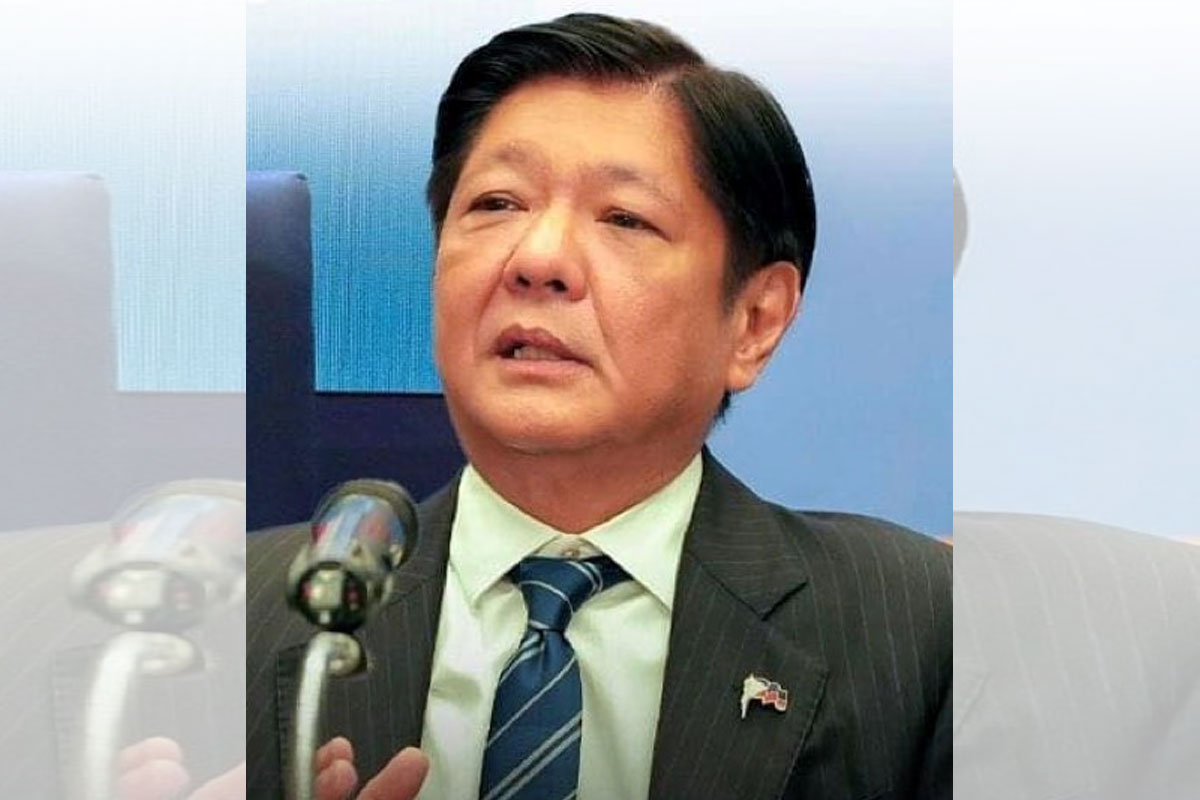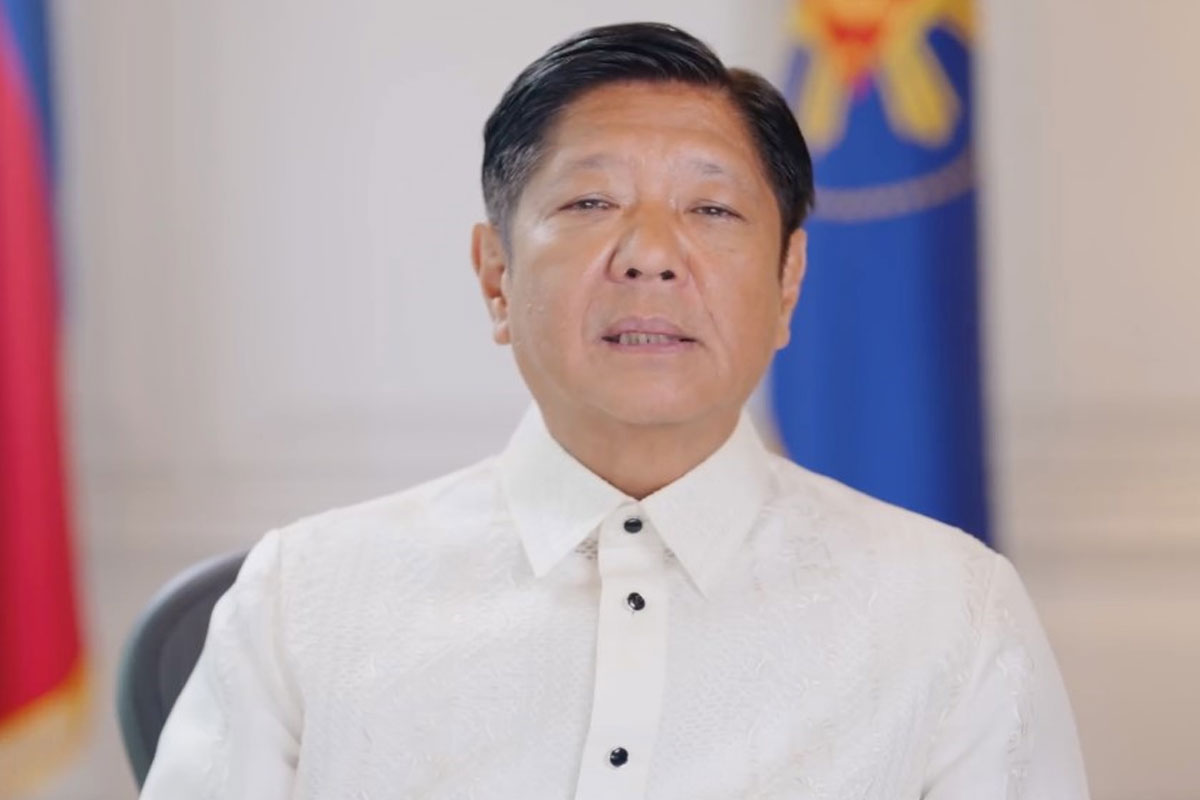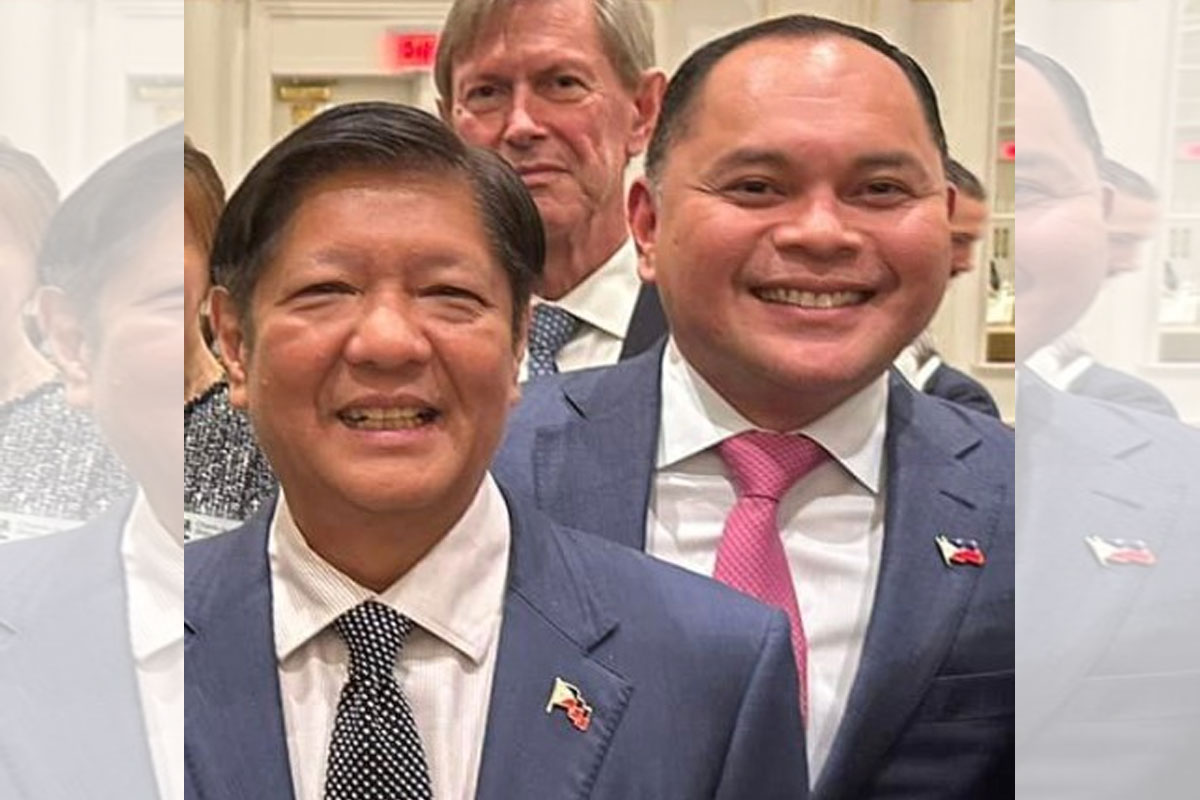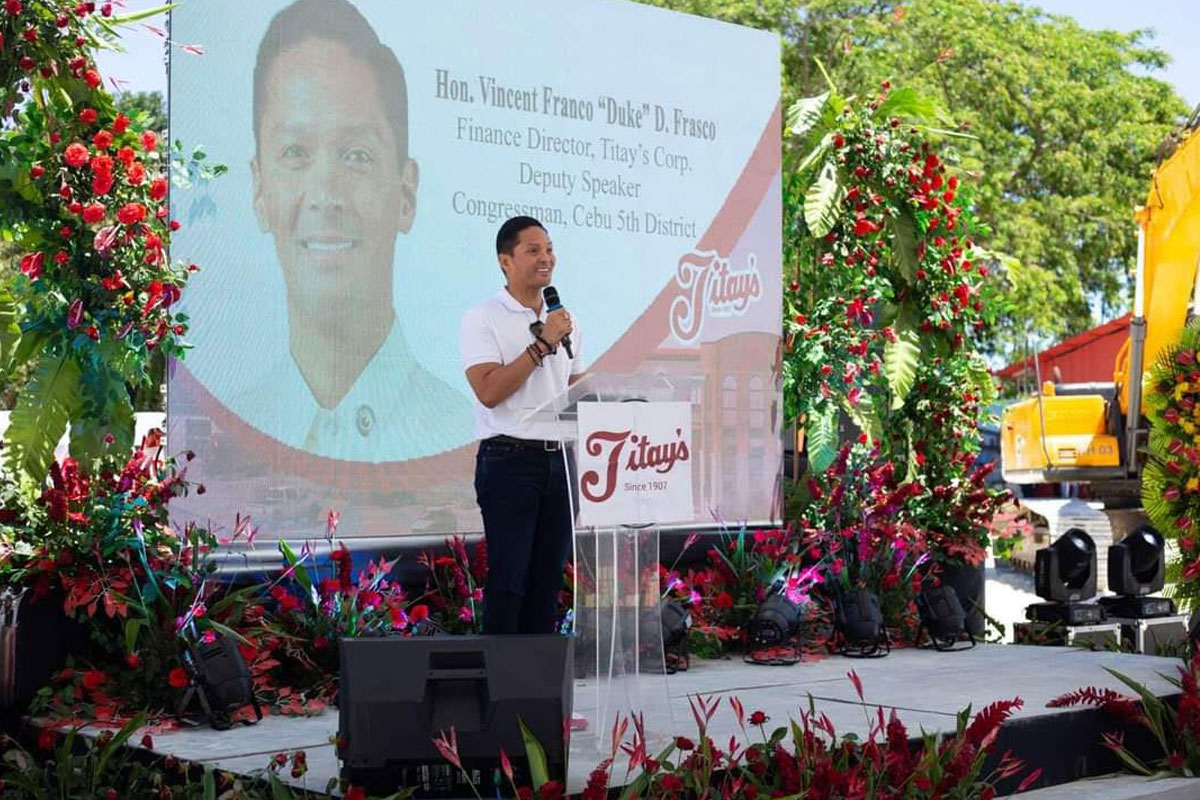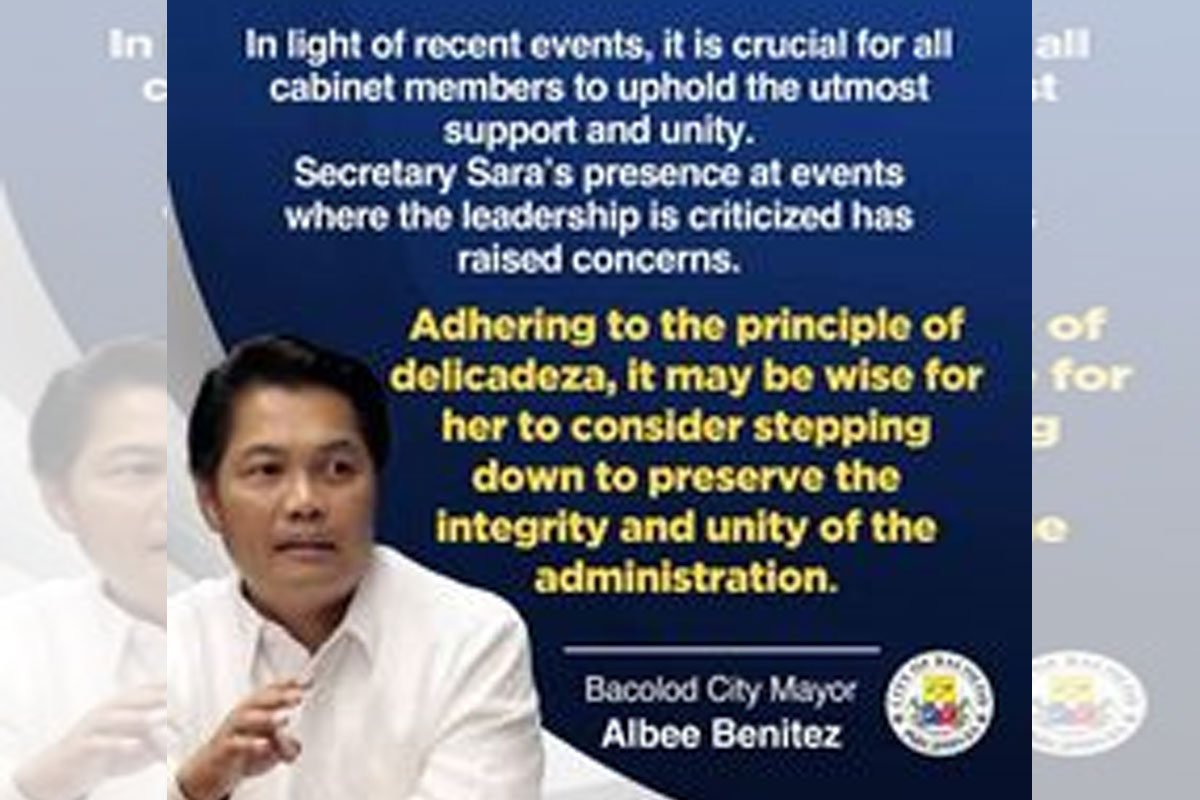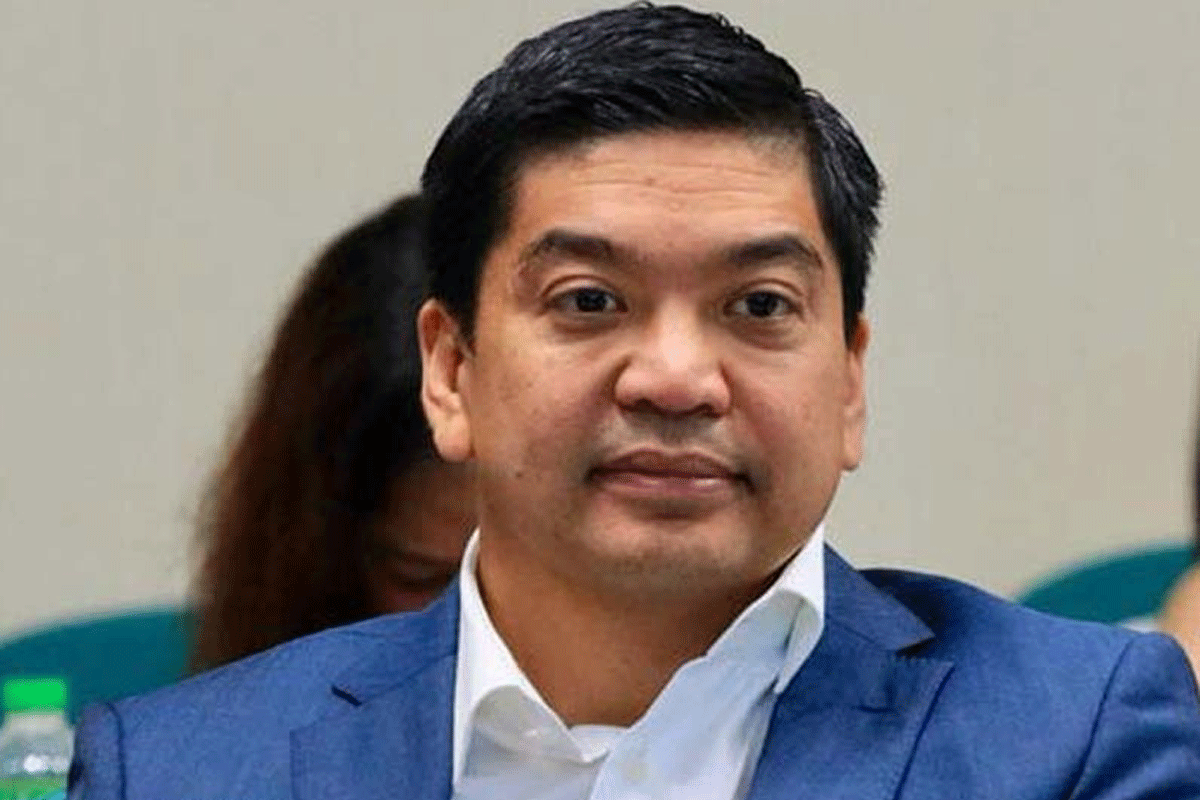
Automatic fuel tax cut to ‘temper’ inflation – LRay
CAMARINES Sur Representative and National Unity Party (NUP) president LRay Villafuerte has reiterated his proposal to reduce the impact of the “unceasing” spiral in the cost of living on ordinary Filipinos via an automatic fuel tax cut whenever there is a considerable increase in the global price of oil, which is a major driver of inflation.
By way of House Bill (HB) No. 5176, Villafuerte wants to make permanent the temporary provision in Republic Act (RA) 10963 – the Tax Reform for Acceleration and Inclusion (TRAIN) Law – that stopped the previous administration from collecting the excise tax on fuel products whenever the average per-barrel cost of Dubai crude oil, based on the Means of Platts Singapore (MOPS) rate, reached $80 over three months before the planned suspension of the tax collection.
The TRAIN Law’s provisional authority to suspend fuel excise tax when the $80 price cap was breached ended in 2020.
Villafuerte, in HB 5176, seeks to amend Section 148 of the National Internal Revenue Code to provide for “the automatic suspension of the excise tax on regular gasoline, unleaded premium gasoline and diesel fuel oil whenever the Dubai crude oil price based on MOPS averages $80 or more per barrel over the three months before the proposed suspension of the tax collection.”
This tax suspension aims, he said, “to bring down the cost of fuel to provide instant relief to the Filipino people and to shield them from further adversities that may be caused by unforeseen economic downturns.”
HB 5176 was referred last year to the House Ways and Means Committee.
“Geopolitical conflicts and other developments in world markets have been driving up the cost of petroleum products, which, in turn, have jacked up transportation expenses and food prices responsible for the seemingly unending elevated inflation that now threatens to slow the global economy and possibly even lead to [a] recession in most parts of the world,” Villafuerte said.
According to the Philippine Statistics Authority (PSA), inflation soared to a 14-year record of 8.1% last December, the highest since the 9.1% clip in 2008 – the year of the global financial crisis – and the ninth consecutive month in 2022 that the pace of commodity price hikes breached the target range of 2% to 4% set by the Bangko Sentral ng Pilipinas (BSP).
PSA data showed the continued inflation spike last month resulted from the higher price index for electricity, vegetables, restaurant services, and private and public transport.
From an average per-barrel cost of about $80 at the onset of 2022, the global benchmark Brent rate went up to as high as $139.13 at one point last year and raised speculations that local fuel prices could hit P100 a liter.
Last year’s peak in pump prices was at P81.02 per liter of gasoline, P83.73 for diesel, and P84.78 for kerosene.
“We need to come up with a surefire way to cushion the economic impact on ordinary Filipino consumers of the rollercoaster ride in the pump prices of diesel and gasoline,” he said, “and the most feasible means to do this is through the permanent suspension of the excise tax imposed on petroleum products whenever the global rate hits the TRAIN-set threshold of $80 per barrel over a three-month period.”
Villafuerte said, “This is the best way for Malacañan Palace and the 19th Congress to take the edge off the economic shock inflicted on our consumers by the never-ending rise in the cost of living, especially now when Filipinos are barely recovering from the almost three-year global economic and health crises caused by the COVID-19 pandemic.”
He explained that the authority under the TRAIN Law to suspend the collection of the 12% excise tax on diesel and on regular and unleaded gasoline whenever the MOP rate of Dubai crude reached $80 or beyond only covered the years 2018 to 2020.
The excise tax is currently pegged at P10 per liter of regular and unleaded premium gasoline and P6 per liter of diesel, he said. “Add to this the VAT (Value Added Tax (VAT) of 12%, and anyone could see how taxes have resulted [in] the hefty increase not only in the price of [the] fuel itself but also in the cost of other goods that rely on fuel for their production and/or transportation.”
Hence, said Villafuerte, his bill is a doable response to the clamor for the suspension of the excise taxes on fuel products.
HB 5176 provides that the implementing rules and regulations (IRR) covering the implementation of this suspension proposal be issued within 30 days of the Act’s effectivity.
Such Act shall take effect 15 days after its publication in the Official Gazette, which is the official public journal of the Philippine government.
The retail cost of gasoline and diesel went up by P1.30 and P1.00 per liter, respectively, on Tuesday (Jan. 31), the third successive upward adjustment in pump prices this January.
In the previous week (effective Jan. 24), per-liter pump prices went up by P2.80 for gasoline and P2.25 for diesel.
Experts have traced January’s steady rise in oil prices in the world market to increasing global demand resulting from China’s reopening and faster fourth-quarter growth in the United States (US) that have eased fears of a US recession.
Before this week’s round of adjustment, a monitoring report of the Department of Energy (DOE) showed that prices since the start of January already logged per-liter net increases of P5.90 for gasoline and P2.05 for diesel.
As of last week, DOE reported that the per-liter price of gasoline ranged from P63.20 to P72.35 in Quezon City and that of diesel from P65.40 to P71.75 in Makati City.
Also, the DOE reported that as of the Jan. 16-20 trading days, the week-on-week MOPS of Dubai crude went up by about $4.50 a barrel. MOPS gasoline increased by $8.70 per barrel and diesel by $6.20.
According to the New York-based website MarketWatch, the Brent Crude Oil Continuous Contract rate was at $86.26 per barrel as of Jan. 25.
With last year’s appointment of former energy chief Raphael Perpetuo as the secretary of the Department of Energy (DOE), Villafuerte hoped the energy department would finally act on the long-conceived government plan to establish a strategic petroleum reserve (SPR) against the backdrop of a tight global oil market supply responsible for 2022’s record upward spiral in fuel prices.
Villafuerte said he looked forward to the prospect that “it wouldn’t be business-as-usual at the DOE, where this SPR plan had sadly crawled at a snail’s pace for more than two years running on the watch of then-Secretary Alfonso Cusi.”
“We are hoping that with Lotilla, a highly-regarded technocrat, and veteran in the energy sector, at the helm of the DOE, the government would, at last, take a long look at the SPR plan, which has unfortunately been stuck in the planning stage at the DOE for over two years now,” said Villafuerte, who had broached the idea about a national fuel reserve in 2019 yet.
Lotilla had served as energy secretary from 2005 to 2007 during the term of then-President Arroyo. He had also served as president of the Power Assets and Liabilities Management Corp. (PSALM) and chairman of the Philippine National Oil Co. (PNOC).
Villafuerte pointed out that DOE officials have “for years been talking the talk about a national SPR, but they have yet to walk the walk on this planned reserve for petroleum products. In fact, the best that then-DOE Secretary Cusi did before to calm an anxious public was to tell them that the PNOC had been tapped to do a feasibility study on it.”





